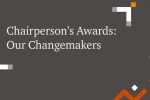Emerging markets driving CEO confidence
New Delhi, 26 January, 2011 - CEOs' confidence in future growth has returned to nearly pre-crisis levels, according to PwC's 14th Annual Global CEO Survey. In the worldwide poll of 1,201 CEOs, 48% said they were “very confident" of growth in the next 12 months - a major shift from the 31% last year who were "very confident" and approaches the 50% reached in 2008 before the onslaught of the economic crisis.
In total, 88% of CEOs said they now have some level of confidence for prospects in the next 12 months, up from 81% last year. In the longer term, 94% CEOs are now confident of growth in the coming three years, an increase of two percentage points.
Renewed confidence was spread across all continents, with CEOs in India, Austria, Colombia, Peru, China, Thailand and Paraguay particularly upbeat about short-term growth. Regionally, CEOs in Western Europe were the least confident. German CEOs were an exception, with nearly 80% of CEOs "very confident," up from about 20% last year. The survey results were released at the World Economic Forum annual meeting in Davos.
On this renewed sense of confidence, Dennis M. Nally, Chairman of PwC International, said ,"CEOs have emerged from the bunker mentality of surviving the recession. They now see renewed opportunity for growth, even in the near term, and are determined to take advantage of better global economic conditions and increased customer demands."
On the pattern of recovery and the future that lies before, Mr Nally further added, "The post-recession global economy is recovering on two-tiers. Emerging economies like China, India and Brazil are growing at rates that far surpass the developed nations. The shift in the economic balance of power creates challenges for CEOs in deciding how and where to invest in facilities, people and innovation. Companies that understand and capitalise on the diverging growth patterns of the developed and emerging economies will be the winners in the years ahead. "
CEOs said they considered China the most important country for future growth. China was named by 39% of CEOs, followed by the US, 21%; Brazil, 19%; and India, 18%. Also, China, the US and India were seen as the most important future sources for products and raw materials. Regionally, 90% of CEOs said they expect their operations to grow in Asia in the next 12 months, followed by Latin America, 84%; Africa, 75%; the Middle East, 72%; and Eastern Europe, 70%. But just a third of respondents said the country in which they are based offers high growth potential.
Commenting on the survey and the growing importance of countries like India and China in the minds of CEOs, Deepak Kapoor, Chairman, PwC India said, “The economic crisis has had a profound impact on patterns of economic growth, regulation, capital markets and consumer behaviours around the world. This survey aims to help us understand how multinational businesses, designed for worldwide operations with international supply chains and global talent pools, are changing their approaches to global operations and global markets. It is indeed exciting to note that in the post crisis scenario, global CEOs are looking at emerging economies like India and China as important contributors in their growth. The pace at which these economies have been growing even during the crisis period, owing to strong domestic demand is phenomenal and it is this resilience that will hold us in good stead in the long- term."
According to CEOs, the best opportunities for growth in the next 12 months will come from the development of new products and services and from increasing share in existing markets, both cited by 29% of CEOs, and by penetration of new markets, 17%. Mergers and acquisitions and joint ventures and alliances trailed as growth strategies.
The positive momentum in CEO confidence was also reflected in hiring plans; more than half (51%) of CEOs worldwide said they expected to add jobs in the next 12 months, up from 39% in the last survey. CEOs in Central Europe, Asia Pacific and Africa were particularly bullish about hiring. Significantly, just 16% of CEOs said they expected to cut their workforce in the coming year, down from 25% last year.
The impact of the recession on strategy was also evident in the survey results. Most CEOs – 84% – said they had changed their company's strategy in the past two years, and about a third said the change was fundamental. Strategic changes were driven primarily by economic uncertainty, customer requirements, and the post-recession dynamics in their industry. Most CEOs said they plan to change their strategies for managing talent (83%), risk (77%), investments (76%), and organisational structure (74%).
Fewer CEOs, 64%, said they planned to cut costs in the next 12 months, down from about 70% last year. And 34% said they would complete a merger or acquisition, half expect to form a new strategic alliance or joint venture, and 31% said they would outsource a business function. Western Europe, Asia and North America were the most popular venues for M&A.;
Other key findings of the 14th Annual PwC Global CEO Survey
Threats to future business:
Nearly three-fourths of CEOs cited uncertain or volatile economic growth as a potential threat to their business, up from 66% last year. Nearly a third of CEOs said they were “extremely concerned" about economic prospects. Other commonly mentioned threats included government response to fiscal deficits, 61%; and over-regulation, 60%; trailed by exchange rate volatility, 54%; unstable capital markets, 52%; and protectionism, 40%. The spectre of inflation was cited by less than a third of respondents.
Among business threats, 56% named the availability of key skills, followed by increasing taxes, 55%, and permanent shifts in consumer behaviours, 48%. A potential talent shortage was a particular concern in Asia Pacific, Central and Eastern Europe, the Middle East and Africa.
Global risks cited by CEOs included political instability, 58%, scarcity of natural resources, 34%, climate change, 27% and natural disasters, 25%.
Government Priorities:
Nearly half of CEOs said the priority of government should be improving the country's infrastructure. It was followed by creating and fostering a skilled workforce, 47%, and ensuring the stability of the financial sector and access to affordable capital, both 45%. More than 60% of CEOs agreed that public spending cuts or tax increases would slow their country's economic growth, and 53% said their company's taxes would rise because of government reaction to increasing public debt. Just over a third of CEOs said that their company was making strategic changes because of public spending cuts or tax increases either at home or abroad.
The Talent Challenge:
In the continuing war for talent, CEOs identified the major challenges over the next three years as: a limited supply of candidates with the right skills, 66%, recruiting and integrating younger employees into the workforce, 54%, losing top people to competitors, 52%, and providing attractive career paths, 50%. The top strategies they identified to meet those challenges were: using more non-financial rewards as motivation,65%, deploying more staff on international assignments, 59%, and working with government and academia to improve skills, 54%.
ENDS
Note to editors
Survey MethodologyFor PwC's 14th Annual Global CEO Survey, 1,201 interviews were conducted in 69 countries during the last quarter of 2010. By region, 420 interviews were conducted in Western Europe, 257 in Asia Pacific, 221 in Latin America, 148 in North America, 98 in Eastern Europe and 57 in the Middle East & Africa.
About PwC
PwC firms provide industry-focused assurance, tax and advisory services to enhance value for their clients. More than 161,000 people in 154 countries in firms across the PwC network share their thinking, experience and solutions to develop fresh perspectives and practical advice. See pwc.com for more information.
In India, PwC (www.pwc.com/India) offers a comprehensive portfolio of Advisory and Tax & Regulatory services; each, in turn, presents a basket of finely defined deliverables. Network firms of PwC in India also provide services in Assurance as per the relevant rules and regulations in India.
Complementing our depth of industry expertise and breadth of skills is our sound knowledge of the local business environment in India. We are committed to working with our clients in India and beyond to deliver the solutions that help them take on the challenges of the ever-changing business environment.
PwC has offices in Ahmedabad, Bangalore, Bhubaneshwar, Chennai, Delhi NCR, Hyderabad, Kolkata, Mumbai and Pune.
PwC has changed its brand name from PricewaterhouseCoopers to PwC. 'PwC' is written in text with a capital 'P' and capital 'C'. Only when you use the PwC logo is the name represented in lower case.
"PwC" is the brand under which member firms of PricewaterhouseCoopers International Limited (PwCIL) operate and provide services. Together, these firms form the PwC network. Each firm in the network is a separate legal entity and does not act as agent of PwCIL or any other member firm. PwCIL does not provide any services to clients. PwCIL is not responsible or liable for the acts or omissions of any of its member firms nor can it control the exercise of their professional judgment or bind them in any way.
2011 PricewaterhouseCoopers. All rights reserved.
Contact us

















